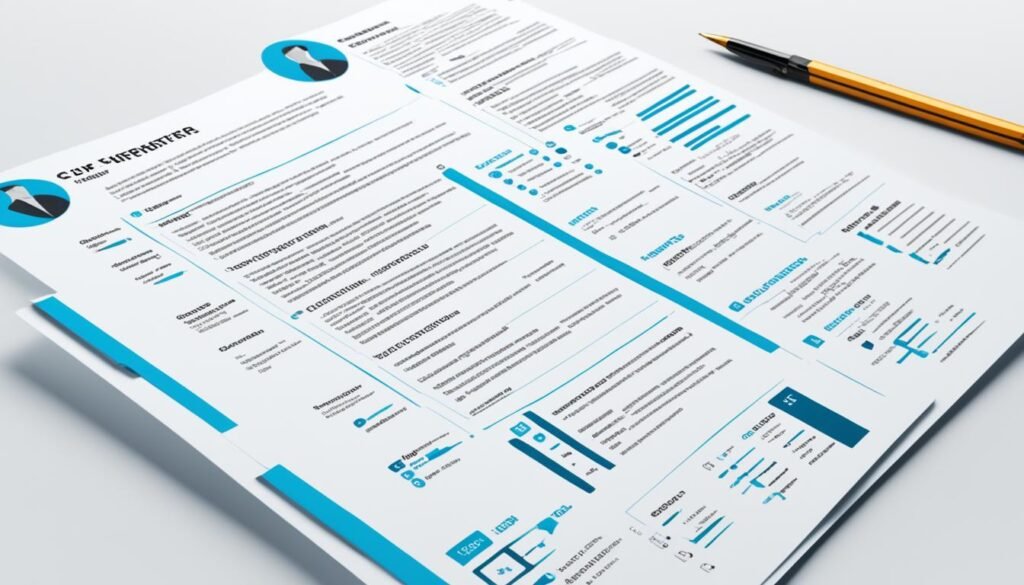Have you ever considered how much an internship can shape your future career? Understanding the significance of internship opportunities is vital for any student eager to enhance their career development. In today’s competitive job market, student internships act as a crucial bridge between theoretical knowledge and practical application, allowing you to gain invaluable experience that will set you apart from your peers.
As you embark on your academic journey, remember that pursuing these opportunities not only equips you with essential skills but also influences your potential income down the road. Studies indicate that college graduates earn significantly more over their lifetimes compared to those without a degree, which outlines the importance of securing relevant internships during your studies to maximise those financial prospects1. Moreover, the right internship can open doors to full-time employment in reputable companies, establishing a solid foundation for your future career2.
Key Takeaways
- Internships bridge the gap between academic knowledge and real-world experience.
- Having relevant internship experience can significantly enhance your employability.
- Strategic internship choices can lead to increased lifetime earnings.
- Internships often result in networking opportunities with industry professionals.
- Engaging in internships helps in developing essential skills sought by employers.
- Maximising internship opportunities can lead to full-time job offers post-graduation.
Understanding the Importance of Internship Opportunities
Internships are pivotal in shaping your career path and enhancing your professional profile. Engaging in these opportunities not only underscores the importance of internships but also facilitates significant career development. Employers predominantly seek candidates who possess practical experience, making internships an essential component in securing your future job prospects.
Your Pathway to Career Development
Embarking on an internship journey equips you with the skills needed to thrive in your chosen field. Many internships focus on hands-on tasks that cultivate relevant skills and real-world knowledge. A considerable percentage of internships provide opportunities for skill development, which is highly valued by employers, leading to greater success in career advancement3. Engaging in these experiences can lead to notable mindset shifts, allowing interns to discover new interests and capabilities that enrich their professional journeys3.
Gaining Practical Experience
The practical experience gained through internships cannot be overstated. Tasks often include responsibility for crucial activities such as diligently recording plays, managing substitutions, and analysing player performance4. Interning in diverse locations, such as South Jersey and New York, adds a layer of adaptability, essential for today’s rapidly changing workplaces4. Moreover, balancing multiple responsibilities in a fast-paced environment may enhance your ability to work efficiently under pressure4. As you navigate these experiences, maintaining professionalism while interacting with various stakeholders is vital4.
In summary, the importance of internships lies in their capacity to provide both career development opportunities and indispensable practical experience. This combination ultimately prepares you to be a competitive asset in the job market, ready to tackle the challenges of your future career4.
Identifying Potential Internship Opportunities
Finding the right internships plays a crucial role in your career development. Several methods can help you identify suitable opportunities, leveraging both university resources and online job portals to your advantage.
Utilising University Resources
Your university can offer invaluable resources to assist you in finding internships. Many institutions provide career services that host workshops, resume reviews, and job boards tailored for students. Engaging with faculty members can also uncover unique internship opportunities, as they often have industry connections. Make the most of these resources to broaden your search effectively.
Exploring Online Job Portals
Job portals serve as a robust tool for discovering internships beyond what your university may offer. Websites such as Indeed, LinkedIn, and Glassdoor allow you to filter searches by industry, making it easier to find positions that align with your interests. In addition, many companies post internships directly on their career pages, making regular checks beneficial. Actively applying to roles that resonate with your career aspirations will further enhance your chances of securing an internship.

By employing these methods, you will streamline your efforts in finding internships tailored to your career goals. With the right blend of resources and proactive searching, you can uncover a wealth of opportunities56.
Networking: The Key to Unlocking Internship Opportunities
Networking serves as a crucial strategy for securing valuable internship opportunities. Developing strong professional relationships can greatly enhance your chances of being considered for positions in your desired field. Building a network involves connecting with various stakeholders, including industry professionals, professors, and fellow students, all of whom can provide insights and referrals that may lead to internship placements.
Building Professional Relationships
Establishing professional relationships is essential in networking. You can start by attending networking events, workshops, and seminars. Engaging actively in these settings allows you to meet people within your industry of interest and fosters meaningful connections. Remember to follow up on conversations, express appreciation, and maintain contact over time. Relationships nurtured through genuine interaction often result in recommendations and insider knowledge about internship openings, showcasing the importance of networking in your professional journey.
Utilising Social Media Platforms
In today’s digital age, social media for internships plays an invaluable role in expanding your reach. Platforms like LinkedIn, Twitter, and even Facebook can help you connect with industry leaders and peers. By sharing insightful content, engaging in relevant discussions, and showcasing your skills, you can boost your visibility to potential employers. Actively participating in online communities related to your field can enhance your networking efforts and provide opportunities that may not be advertised traditionally. Use these platforms to search for internship positions and connect with individuals who can offer guidance and support in your career path.
Utilising a mix of online and offline networking strategies can significantly impact your internship prospects. A well-rounded approach ensures that you not only cultivate professional relationships but also stay informed about the most current opportunities in the job market. Building a strong network requires time and effort, but the rewards in terms of internships and job placements can be substantial. Keep in mind that the relationships you forge today may provide critical support in your future career7.
How to Prepare Your Application for Internship Opportunities
Successfully preparing your application for an internship requires a focus on two main components: crafting an effective CV and writing a compelling cover letter. Each document should reflect your skills and relevance to the specific role you are applying for.
Crafting an Effective CV
Your CV serves as a critical first impression. An effective CV should be tailored to highlight relevant experiences and skills aligned with the internship application. Key elements to consider include:
- Clear formatting: Maintain a professional appearance that is easy to read.
- Relevant experience: Focus on internships, volunteer work, or projects that directly relate to the position.
- Achievements: Include quantifiable accomplishments to demonstrate your contributions.
- Educational qualifications: List your degree, major, and any noteworthy coursework or projects.
Remember to keep your CV concise, ideally one page long, while ensuring it aligns with the expectations of the role you seek. This attention to detail can significantly elevate your candidacy.
Writing a Compelling Cover Letter
The cover letter complements your CV by allowing you to express your personality and motivation. A compelling cover letter should convey your enthusiasm for the internship, as well as your understanding of the organisation’s goals. Consider structuring it with the following elements:
- Introduction: State the position you are applying for and express your interest.
- Body paragraphs: Highlight relevant experiences and how they relate to the internship. For example, emphasise your understanding of baseball fundamentals if applying for a role in sports management, detail your involvement in story assignments if your focus is journalism, or cover your achievements in other relevant fields.
- Conclusion: Reiterate your interest and summarise why you would be a great fit for the position.
Make sure to customise each cover letter for the internship application you submit; this tailored approach helps you stand out from the competition. A strong blend of both an effective CV and a compelling cover letter can notably enhance your chances of securing an interview.

Making the Most of Career Fairs
Career fairs present unique opportunities for you to connect directly with potential employers, enhancing your chances of internship success. To maximise the impact of these events, consider several effective strategies that can put you in a strong position when engaging recruiters.
Strategies for Success
- Preparation: Research the companies attending the career fair and identify those that align with your interests and career goals.
- Practice Your Pitch: Develop a concise elevator pitch that summarises your skills and goals. This will help you communicate effectively in a limited time.
- Dress Professionally: Your appearance matters. Dressing professionally can create a positive first impression with recruiters.
- Follow Up: After the event, reach out to recruiters you connected with. A timely follow-up can help reinforce your interest and make you memorable.
Engaging with Recruiters
When you approach recruiters, your ability to engage can greatly influence your chances of securing an internship. Here are some tips to enhance your interaction:
- Ask Insightful Questions: Show genuine interest by inquiring about their company culture, internship programmes, and growth opportunities.
- Be Ready to Discuss Your Experience: Highlight relevant experiences on your resume, such as projects or skills, to demonstrate your suitability.
- Practice Active Listening: Pay attention to recruiters’ responses and engage in meaningful dialogue, showcasing your enthusiasm and understanding.
By employing these strategies, you can effectively navigate career fairs, enhancing your networking opportunities and internship success89.
Internship Opportunities: Tailoring Your Search
Focusing your internship search allows you to discover opportunities that align closely with your career goals. A tailored internship search involves assessing your interests, identifying the types of roles you desire, and understanding how specific internships can enhance your skill set. By honing in on your aspirations, you can filter through the myriad of opportunities available and find those that genuinely align with your future plans.
Matching Opportunities with Your Career Goals
To make the most of your internship search, you should utilise various strategies that ensure a focused approach. Start by assessing your long-term career goals and identify internships that can propel you toward those objectives. Utilising filters on online job portals is an effective way to narrow down your options, enabling you to locate internships that match both your interests and aspirations. Consider reaching out to industry contacts who may be aware of hidden opportunities or can provide insights into specific fields.
- Clarify your career goals and the skills needed to achieve them.
- Use keywords related to your desired field when searching for internships.
- Network with professionals in your area of interest to uncover opportunities.
- Stay organised by tracking your applications and responses.
Incorporating these strategies into your tailored internship search will help you to uncover matching opportunities that are closely aligned with your career goals. This focused approach will not only save time but also enhance your chances of securing internships that foster your growth and development.

Developing Essential Skills During Your Internship
Internships serve as invaluable platforms for honing essential skills during internship. Engaging in real-world environments allows you to improve competencies that are critical for your future career. This section delves into the significance of communication, teamwork, time management, and organisation skills that can be cultivated throughout your internship experience.
Communication and Teamwork
Effective communication is a cornerstone of any successful internship. You will encounter opportunities to collaborate with diverse teams, enhancing your ability to express ideas clearly and listen actively. Key strategies include:
- Participating in team meetings to voice opinions and share feedback.
- Utilising digital communication tools for clarity and cohesion.
- Building rapport with colleagues to foster a supportive work environment.
Time Management and Organisation
Mastering time management is crucial for balancing internship responsibilities alongside academic commitments. Developing strong organisational skills will empower you to meet deadlines consistently. Consider the following tips:
- Creating a daily or weekly schedule to prioritise tasks.
- Setting specific goals for each workday to maintain focus.
- Utilising productivity apps to track your progress.
By actively seeking to enhance these essential skills during internship, you position yourself as a strong candidate for future employment opportunities. Mastery of communication, teamwork, time management, and organisation will make you a valuable asset in any professional setting.
Leveraging Your Internship Experience for Future Opportunities
Internships provide a wealth of experience, which is vital for shaping your career trajectory. By leveraging internship experience, you can markedly enhance your prospects in future job opportunities. Connecting your practical experiences with your updated skills is essential as you prepare for the competitive job market.
Updating Your CV
Updating your CV is a crucial step after completing an internship. It allows you to reflect new skills, responsibilities, and experiences gained during your tenure. Highlighting specific projects you contributed to can significantly boost your CV updates, setting you apart from other candidates. Tailoring your CV to include technical skills such as programming languages and soft skills like communication will enhance your employability in data science roles. Pursuing opportunities in data science can be further aided by showcasing any programming languages you’ve learned, such as SQL or Python, which are particularly valuable10.
Requesting References and Recommendations
Requesting references and recommendations from your internship supervisors is an important practice. Such endorsements can add credibility to your application and substantiate your experience in the eyes of future employers. Networking during your internship might lead to connections that could prove advantageous down the line. Establishing these relationships can provide you a supportive network in the ever-evolving employment landscape. Doing so helps you navigate shifts towards gig economies predicted by industry leaders, reflecting the changing nature of job roles and enhancing adaptability within your career path11.

By effectively updating your CV and securing robust references, you position yourself favourably for future opportunities that arise101112.
Internships vs. Volunteering: Which is Right for You?
When considering how to build your career, understanding the differences between internships vs volunteering is vital. Internships tend to focus on your professional development, offering structured programmes designed to equip you with specific skills and experience relevant to your field. They often provide networking opportunities that can lead to future employment.
In contrast, volunteering emphasises personal fulfilment and community contribution. While it may lack the formal structure of internships, volunteering allows you to explore your passions and values, which can be equally important in your career journey. Many individuals find that volunteering is an excellent way to gain new experiences and skills without the pressure of a job description.
Choosing the right opportunity ultimately depends on your career objectives. If you require experience that aligns with specific job competencies, internships may be the better option. On the other hand, if you seek to develop soft skills, such as teamwork and leadership whilst giving back to the community, volunteering might be the perfect fit. Each path offers unique benefits, and a careful evaluation of what you hope to achieve can guide your decision-making process.
Studies indicate that organisations such as the International Rescue Committee (IRC) provide structured internships, ensuring interns assist clients with essential applications while gaining hands-on experience in various environments. Founded in 1933, the IRC operates in over 50 countries and more than 25 U.S. cities, with 28 offices across the U.S. that ensure new arrivals receive basic necessities like food, shelter, and clothing13. The minimum qualifications for internships here usually require candidates to pursue an undergraduate or graduate degree, with a preference for those pursuing a JD13. This highlights the structured nature and clear pathways internships can provide, making them attractive for career-minded individuals.
In conclusion, whether you choose internships vs volunteering, understanding the potential paths available will empower you to make informed decisions about your future opportunities.
The Role of The Continents States University in Internship Opportunities
The Continents States University plays a crucial part in assisting students to secure valuable internships. Recognising the importance of practical experience, the university provides substantial internship support that encompasses a wide range of resources for students, enabling them to navigate the competitive job market effectively.
Support and Resources for Students
To optimise your internship search, you can take advantage of various resources offered by The Continents States University, including:
- Job placement services that connect you with potential employers.
- Workshops designed to enhance your job application skills and internship strategies.
- Networking opportunities with industry professionals through university-sponsored events.
Utilising these resources for students can significantly improve your chances of landing an internship that aligns with your career aspirations.
For additional context, The Continents States University aims to bridge the gap between academia and industry, ensuring that students are well-prepared for the demands of the workplace. With dedicated internship support, you can explore various career paths and gain insights into your desired field14.
Common Challenges Faced by Interns
Interns often encounter significant challenges during their placement, which can impact their overall experience. Understanding these challenges is vital for successful navigation and thriving in a professional environment.
Time Constraints and Work-Life Balance
One of the prominent challenges faced by interns is effective time management. Internships typically demand a considerable time commitment, which can strain your work-life balance. With multiple responsibilities, it becomes essential to prioritise tasks efficiently. Time constraints may lead to stress, making it crucial to establish a routine that accommodates both professional and personal commitments. Utilising tools like calendars and task management apps can greatly aid in maintaining organisation, allowing you to fulfil your internship duties while still enjoying personal time. This approach helps mitigate the challenges faced by interns regarding work-life balance and improves overall productivity and satisfaction.
Adapting to Workplace Culture
Workplace adaptation presents another significant hurdle for many interns. Each workplace has its unique culture, requiring you to acclimatise to new social environments and professional norms. Observing established team members and seeking guidance can facilitate this process. Engaging in open communication with colleagues allows you to develop relationships that ease this transition. Being open and adaptable to different working styles can help you overcome the challenges faced by interns. Embracing feedback from supervisors can also foster personal and professional growth, ensuring that you thrive within your internship role.
Conclusion
Internship opportunities play a pivotal role in facilitating your career advancement, providing invaluable hands-on experience that goes beyond classroom learning. By summarizing key points from the article, you have gained an understanding of how to identify and leverage these opportunities effectively, whether through university resources, online job portals, or networking connections derived from social media platforms.
Moreover, you are now equipped with proven strategies to enhance your application, such as crafting a compelling CV and cover letter, while also appreciating the essential skills you can develop during your internship. Engaging fully with the highlighted strategies will not only optimise your chances of securing an internship but will also prepare you for a successful transition into your career.
As you consider the next steps, remember to seek out the multitude of resources available to you and take proactive measures. Maximising these internship opportunities is crucial in achieving your career aspirations, and with the knowledge gained, you are well-positioned to embark on this important journey15313.
Source Links
- /tv/ – >”I WENT TO COLLEGE” How do you respond without so – Television & Film – https://boards.4chan.org/tv/thread/202094719/i-went-to-college
- Call Center Sales Rep (Bilingual Spanish) – $18 per Hour Plus Commission & Incentives at Spectrum | The Muse – https://www.themuse.com/jobs/spectrum/call-center-sales-rep-bilingual-spanish-18-per-hour-plus-commission-incentives-acc3ff
- Your Voice: My summer internship with TAB Media Group | The Alabama Baptist – https://thealabamabaptist.org/your-voice-my-summer-internship-with-tab-media-group/
- Field Manager/Field Scout Internship – Fall 2024 – Perfect Game USA – https://www.teamworkonline.com/baseball-jobs/perfect-game/perfect-game-jobs/field-manager-field-scout-internship-fall-2024-2088837
- Job ID:24029967 – Wealth Management Client Associate – Monterey, California – https://careers.bankofamerica.com/en-us/job-detail/24029967/wealth-management-client-associate-monterey-california-united-states
- SAP GFA iXp Intern – Global Licensing Management & Compliance – https://jobs.sap.com/job/Sofia-SAP-GFA-iXp-Intern-Global-Licensing-Management-&-Compliance-1407/1104377601/
- You’re struggling to attract clients in Education. How can you keep them coming back for more? – https://www.linkedin.com/advice/3/youre-struggling-attract-clients-education-how-can-kg67e
- Biotechnology Student Parag Shinde Gains Industry Experience Through Summer Pharma Role – UMBC: University Of Maryland, Baltimore County – https://umbc.edu/stories/shinde-biotechnology-internship/
- LifeSci NYC Internship Program – Career Development Manager – https://www.idealist.org/en/consultant-job/00af3dd306654b71a45ae067b556d850-lifesci-nyc-internship-program-career-development-manager-upper-west-strategies-new-york
- Expert advice on how to build a successful career in data science, including tips on education, skills, and job searching. – https://dev.to/mark_ouma/expert-advice-on-how-to-build-a-successful-career-in-data-science-including-tips-on-education-skills-and-job-searching-lni
- LinkedIn Co-Founder Predicts the End of 9-to-5 Jobs by 2034? – https://medium.com/@myequation/linkedin-co-founder-predicts-the-end-of-9-to-5-jobs-by-2034-2841221190ca
- Open Application – Internship/Entry level – surplusmap – https://surplusmap.teamtailor.com/jobs/1918303-open-application-internship-entry-level
- Immigration Intern (Fall 2024) | IRC – International Rescue Committee – https://www.impactpool.org/jobs/1095675
- WHYY – https://whyy.org/
- Impact of dietary risk on global ischemic heart disease: findings from 1990–2019 – Scientific Reports – https://www.nature.com/articles/s41598-024-69089-w


